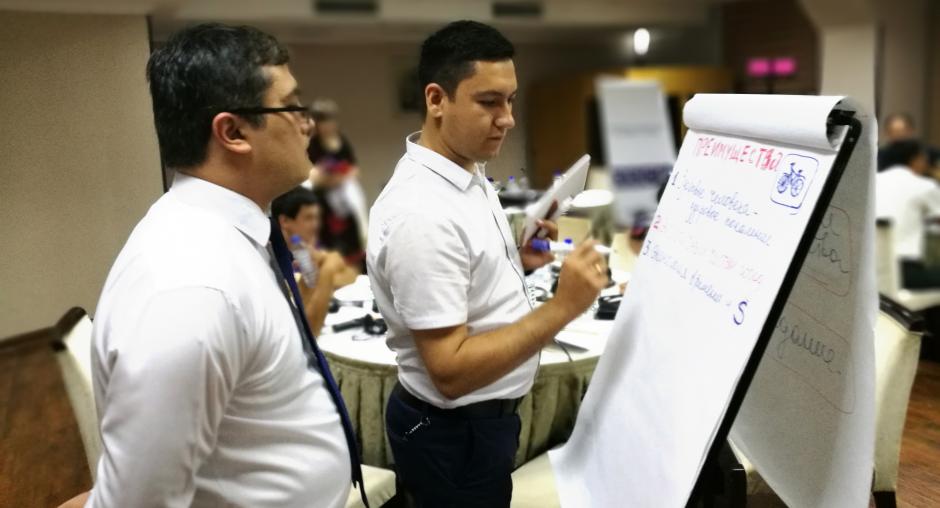OSCE Project Co-ordinator in Uzbekistan promotes sustainable mobility

A three-day workshop on sustainable mobility, co-hosted by the OSCE Project Co-ordinator in Uzbekistan and the Gesellschaft für Internationale Zusammenarbeit (GIZ), concluded on 29 June 2018 in Tashkent.
The event brought together some 30 representatives of the National Agency for Project Management under the President of Uzbekistan, the Tashkent districts (khokimiyats), the National Highway Traffic Safety Administration of Tashkent city, the State Planning Committee, civil society organizations and the private sector.
“Today’s environmental problems and in particular climate change bring new challenges to us as humans in terms of how we organize our consumption and our lifestyle in order to preserve our planet for future generations,” said Juergen Becker, OSCE Senior Project Officer. “We have to reflect on how we can bring a sustainability factor into urban sector development, in particular when it comes to transportation, and on how we can we reduce CO2 emissions through smart planning while at the same time making cities enjoyable for citizens, not only vehicles.”
The workshop was held within the framework of the OSCE’s efforts to support Uzbekistan in the implementation of green economy policies and focused on exchanging challenges and best practices in the field of sustainable mobility. The overall objective was to increase the capacity of municipal-level decision makers engaged in the urban development and implementation of ‘smart city’ planning. A group of cycling activists also participated, sharing their experiences and providing feedback from the users’ side.
Jan Rickmeyer, GIZ Transport Policy Advisor, said: “To transform urban mobility to higher sustainability is one of the key challenges for city development. A lot of answers and solutions for sustainable mobility are already being implemented all over the world, and one of the most promising solutions for tackling mobility issues is to exchange knowledge and to train municipal experts and important stakeholders in the field of sustainable mobility.”
Participants were able to further familiarize themselves with the concept of sustainable mobility through case studies on the cities of Bremen, Moscow and Almaty, and by discussing potential projects in Tashkent. Moreover, throughout the various sessions, special attention was paid to the facilitation of bilateral and multilateral consultations in order to discuss current challenges and stimulate the development of co-ordinated follow-up projects.
